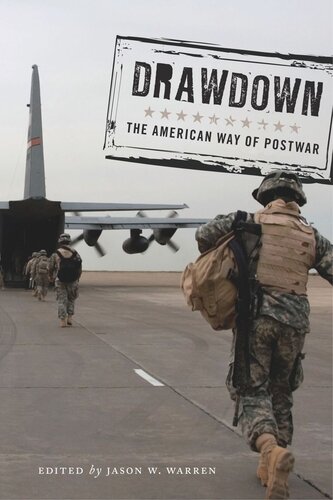

Most ebook files are in PDF format, so you can easily read them using various software such as Foxit Reader or directly on the Google Chrome browser.
Some ebook files are released by publishers in other formats such as .awz, .mobi, .epub, .fb2, etc. You may need to install specific software to read these formats on mobile/PC, such as Calibre.
Please read the tutorial at this link: https://ebookbell.com/faq
We offer FREE conversion to the popular formats you request; however, this may take some time. Therefore, right after payment, please email us, and we will try to provide the service as quickly as possible.
For some exceptional file formats or broken links (if any), please refrain from opening any disputes. Instead, email us first, and we will try to assist within a maximum of 6 hours.
EbookBell Team

4.3
38 reviewsAnalyzes the cultural attitudes, political decisions, and institutions surrounding the maintenance of armed forces throughout American history
While traditionally, Americans view expensive military structure as a poor investment and a threat to liberty, they also require a guarantee of that very freedom, necessitating the employment of armed forces. Beginning with the seventeenth-century wars of the English colonies, Americans typically increased their military capabilities at the beginning of conflicts only to decrease them at the apparent conclusion of hostilities. In Drawdown: The American Way of Postwar, a stellar team of military historians argue that the United States sometimes managed effective drawdowns, sowing the seeds of future victory that Americans eventually reaped. Yet at other times, the drawing down of military capabilities undermined our readiness and flexibility, leading to more costly wars and perhaps defeat. The political choice to reduce military capabilities is influenced by Anglo-American pecuniary decisions and traditional fears of government oppression, and it has been haphazard at best throughout American history. These two factors form the basic American “liberty dilemma,” the vexed relationship between the nation and its military apparatuses from the founding of the first colonies through to present times.
With the termination of large-scale operations in Iraq and the winnowing of forces in Afghanistan, the United States military once again faces a significant drawdown in standing force structure and capabilities. The political and military debate currently raging around how best to affect this force reduction continues to lack a proper historical perspective. This volume aspires to inform this dialogue. Not a traditional military history, Drawdown analyzes cultural attitudes, political decisions, and institutions surrounding the maintenance of armed forces.